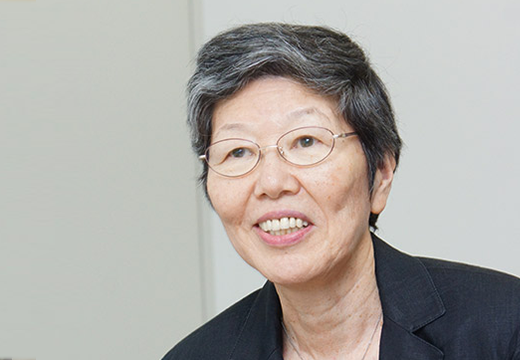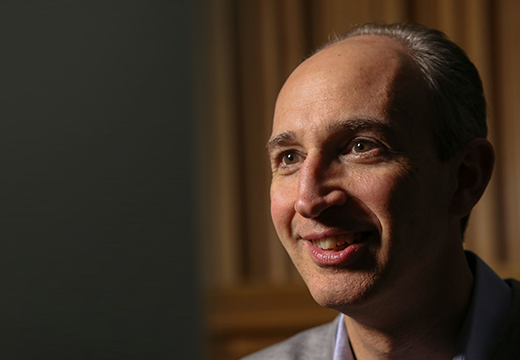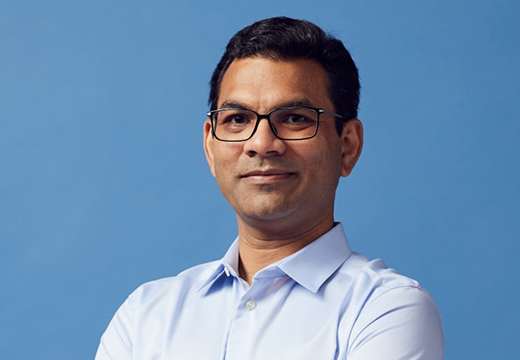-
-
Yoshua Bengio
Scientific Director, Mila
Yoshua is recognized as one of the world’s leading experts in artificial intelligence and a pioneer in deep learning. A recent co-recipient of the Turing Award, “the Nobel Prize of Computing” in 2019, he is a professor in the Department of Computer Science and Operational Research at the Université de Montréal and a major contributor to the Montreal Declaration for Responsible Development of Artificial Intelligence.
-
-
Rodney Brooks
Member of the US National Academy of Engineering, Author & Robotics Entrepreneur
Rodney is the Panasonic Professor of Robotics (emeritus) at the Massachusetts Institute of Technology and world-renowned robotics entrepreneur who founded Rethink Robotics and iRobot Corp., inventor of the Roomba robot vacuum. Dr. Brooks is the former Director of MIT’s Artificial Intelligence and the Computer Science & Artificial Intelligence Laboratories and a prolific author on the impact of robots in human society now and in the future.
-
-
Dr Christina J. Colclough
The Why Not Lab
Christina is a foremost thought-leader on the future of work(ers) and the politics of technology. She is an advocate for global workers’ rights and for the need to regulate digital tools to ensure they serve people and the planet. She is a member of the OECD One AI Expert Group, the UN’s Secretary General Roadmap for Digital Cooperation and is affiliated to FAOS, the Employment Relations Research Center at Copenhagen University. Christina was named as one of the world’s most influential women on the Ethics of AI in 2019.
-
-
David Foster
Head of Lyft Transit, Bikes and Scooters
David is an experienced technology executive who has led teams creating some of the world’s most innovative products across multiple Fortune 500 companies. A Doctor of Philosophy with a Master’s in Electrical and Electronics Engineering from Oxford University, David has held senior positions at Amazon, Bossa Nova Robotics and Apple. He currently leads Lyft’s Transit, Bikes and Scooters line of business and also serves as VP Engineering.
-
-
Dr. Yuko Harayama
Executive Director of International Affairs at RIKEN
Yuko is one of the initiators of Society 5.0 and former Executive Member of the Council for Science, Technology and Innovation Cabinet Office of Japan. She is also the former Deputy Director of the Directorate for Science, Technology and Innovation, OECD. Previously, she was a Professor in the Department of Management Science and Technology at the Graduate School of Engineering of Tohoku University and is a recipient of the Chevalier de la Légion d’Honneur.
-
-
Charles Lee Isbell Jr.
Dean of Computing and John P. Imlay Jr. Chair, Georgia Institute of Technology
Charles is a computer scientist, researcher, and educator. He has been a professor in the Georgia Institute of Technology College of Computing since 2002, and since July 2019 serves as the College’s dean. His research interests focus on machine learning and artificial intelligence, particularly interactive and human-centered AI. In addition to his research work, Isbell is an advocate for diversity in higher education, serving on numerous committees focused on advancing diversity in computing.
-
-
Helena Leurent
Director General of Consumers International
Helena, as the head of Consumers International, the membership organisation for over 200 consumer advocacy groups in over 100 countries, is a world-leading advocate for consumer rights. Prior to joining Consumers International, she worked for the World Economic Forum developing global partnerships and programmes with government, business, civil society and academia on issues such as advanced manufacturing, sustainable agriculture and humanitarian assistance.
-
-
Bo Peng
Portfolio Director, IDEO
Bo is a Director at IDEO, the leading design company known for interdisciplinary approaches and application of design-thinking. She is focused on the intersection of data science and human-centered design, helping lead IDEO’s data science community. Bo recently worked in Shanghai, pushing the boundaries of human-centered data science across Asia and is an active advocate for women in machine learning and data science.
-
-
Jeff Poggi
Co-CEO of the McIntosh Group
With previous stints at Harman International and the Bose Corporation, Jeff has over two decades of experience in the audio equipment industry. He is currently co-CEO of The McIntosh Group, a world leader in the high-end consumer audio industry with leading brands such as McIntosh, Sonus Faber, and Sumiko. His passion is the fusion of luxury home audio experiences into the automotive OEM market, particularly at a time when self-driving cars are poised to be an extension of people’s living rooms.
-
-
Sri Shivananda
Senior Vice President and Chief Technology Officer at PayPal
Sri plays a critical role in helping PayPal remain at the forefront of innovation, overseeing technology. Sri leads a talented global team responsible for the company’s secure, stable, and scalable global infrastructure and strategic core platform, the foundation that enables PayPal to deliver innovative products and services to consumers and merchants all over the world.
-
-
Dr. Max Welling
VP Technologies at Qualcomm Technologies Netherlands B.V.
Max is a professor and research chair in Machine Learning at the University of Amsterdam and a Vice President of Technologies at Qualcomm. He has a secondary appointment as a senior fellow at the Canadian Institute for Advanced Research (CIFAR). He is co-founder of “Scyfer BV” which was acquired by Qualcomm in summer 2017. Max has over 250 scientific publications in machine learning, computer vision, statistics and physics.
-
-
Alex Zafiroglu
Deputy Director at the 3A Institute (3Ai)
Alex, an anthropologist and cyberneticist, is a Professor of Cybernetics at the 3A Institute (3Ai) at the Australian National University. Before 3Ai, Alex spent 15 years at Intel Corp. contributing to the R&D and commercial development of technology across the Advanced Research, Digital Home and Internet of Things divisions. She was appointed Principal Engineer within the Internet of Things Division and was Intel’s foremost domain expert in homes and home life.
AIX ReportThe Future of AI & Human Experience
After LG Electronics and Element AI launched the Levels of AIX Framework at CES 2020, we wanted to open up the discussion to the broader ecosystem and bring together the expertise and forethought of multidisciplinary teams from around the world to help identify the challenges and opportunities that lie ahead.
So in this follow-up report, released at CES 2021, we collected the perspective of AI experts and leaders in various fields such as design, anthropology, policy, consumer and employee advocacy. Each brings their own point of view on the challenges and opportunities for the future of AI and the role that AIX design should play when applying the technology for our homes, work, cars and public spaces.
Listen, watch and read about the key themes affecting the future of the industry, the technologies and trends that will impact our experiences!
AIX FrameworkThe AIX Themes
Guided by the Levels of AIX Framework with its focus on human experience and informed
by recent AI developments and insight from leading experts we have identified six interlocking themes
that present distinct challenges for the future of AI and human experience.
-
 Public Perception
Public Perception
-
 Ethics
Ethics
-
 Transparency
Transparency
-
 User Experience
User Experience
-
 Context
Context
-
 Relationships
Relationships

Public Perception deals with how our opinions, fears and expectations for personalized AI is shaped by pop culture, education and marketing and questions the role of business, government and the broader public in driving a more realistic and consistent understanding of the technology.
Explore This Theme
Ethics is a hot topic in AI but hasn’t been explored thoroughly through a specific consumer lens. This theme addresses how AI should be developed inclusively and takes into consideration the differing values of individuals and cultures while raising questions about responsibility for privacy and security.
Explore This Theme
Transparency speaks to the need for clear, open communication between all stakeholders and especially for the end-user. From explainable AI and clear feedback loops to managing expectations of consumers, this theme is about building and maintaining trust through AIX design.
Explore This Theme
User Experience raises questions about design functionality and purpose as it pertains to consumer devices and services. Whether running in the background or directly interfacing with users, how can we consider human-centric design principles and ensure the best possible user experience?
Explore This Theme
Context deals with the environmental, cultural and personal nuances that need to be considered to ensure equitable and purpose-driven AI. Home, work, car and public spaces require different social rules, while individual personalities and values require AI that reasons, understands, explores and adapts.
Explore This Theme
Relationships is a theme that examines the role AI plays in our lives and how we interact and engage with new powerful tools as the technology advances. From human-machine collaboration and cohabitation to consumer expectations for AI that is fallible and learns over time, our relationship with technology is changing as AI becomes more purposeful, useful and embedded.
Explore This ThemeThe Experts
This report could not have been done without the help of organizations and experts who donated their time to provide input, advice and content.
Special thanks to the following experts for providing their diverse perspectives on the topic of human-centric consumer AI:
-
-

-
Yoshua Bengio
Scientific Director, Mila
Bio & Full Interview
-
-
-

-
Rodney Brooks
Member of the US National Academy of Engineering, Author & Robotics Entrepreneur
Bio & Full Interview
-
-
-

-
Dr Christina J. Colclough
The Why Not Lab
Bio & Full Interview
-
-
-

-
David Foster
Head of Lyft Transit, Bikes and Scooters
Bio & Full Interview
-
-
-

-
Dr. Yuko Harayama
Executive Director of International Affairs at RIKEN
Bio & Full Interview
-
-
-

-
Charles Lee Isbell Jr.
Dean of Computing and John P. Imlay Jr. Chair, Georgia Institute of Technology
Bio & Full Interview
-
-
-

-
Helena Leurent
Director General of Consumers International
Bio & Full Interview
-
-
-

-
Bo Peng
Portfolio Director, IDEO
Bio & Full Interview
-
-
-

-
Jeff Poggi
Co-CEO of the McIntosh Group
Bio & Full Interview
-
-
-

-
Sri Shivananda
Senior Vice President and Chief Technology Officer at PayPal
Bio & Full Interview
-
-
-

-
Dr. Max Welling
VP Technologies at Qualcomm Technologies Netherlands B.V.
Bio & Full Interview
-
-
-

-
Alex Zafiroglu
Deputy Director at the 3A Institute (3Ai)
Bio & Full Interview
-
Report Sponsors
-
-
-
LG Electronics
LG is a global leader and pioneer of the latest innovations to ensure “Life’s Good” – from a wide range of home appliances to busines innovations in digital signage, air conditioning, solar and LED lighting. LG’s philosophy revolves around people, sincerity, and sticking to the fundamentals. It is to understand its customers and to offer optimum solutions and new experiences through ceaseless innovation, thus helping its customers lead better lives.
-
-
-

-
Element AI
Element AI is a global developer of artificial intelligence-powered (AI) software solutions. Created in Montreal – Canada’s deep learning hub – it launched with a unique vision: Democratize AI with a non-predatory and totally collaborative model for commercializing AI Drive cutting-edge research that makes AI accessible, scalable, and trustworthy Transform work around human-machine collaboration With 350 people across offices in five cities in North America, Europe, and Asia, EAI enables the world’s most innovative companies to reinvent the way they do business.
-